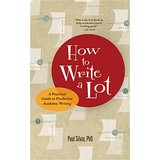Crafting a Comprehensive White Paper: A Synthesis of "Writing with Power" and "Writing Without Teachers"
Introduction
This white paper explores the core principles and practical techniques outlined in Peter Elbow's seminal works, "Writing with Power" and "Writing Without Teachers." By delving into these texts, we will examine the essential elements of powerful writing, the importance of the writing process, and the role of the writer in their own development.
Key Themes and Concepts
- The Power of the Process:
- Freewriting: A technique that encourages unfiltered, continuous writing to generate ideas and overcome writer's block.
- Looping: A cyclical process of drafting, revising, and rereading to refine and deepen one's writing.
- Cooking: A metaphor for the creative process, where ideas are "cooked" through multiple drafts and revisions.
- The Importance of Voice and Style:
- Authenticity: Writing from one's own perspective and experiences to create genuine and compelling work.
- Clarity and Conciseness: Using clear language and concise sentences to effectively communicate ideas.
- Rhetorical Strategies: Employing various techniques, such as ethos, pathos, and logos, to persuade and engage readers.
- The Role of the Writer:
- Self-Awareness: Understanding one's own strengths and weaknesses as a writer.
- Risk-Taking: Embracing experimentation and challenging conventions to create innovative work.
- Persistence: Persevering through challenges and setbacks to achieve writing goals.
Practical Applications
- Writing Exercises: Incorporate freewriting, looping, and other techniques into daily writing practice.
- Reader Response Groups: Share and receive feedback on writing to gain new perspectives.
- Writing Communities: Join online or in-person writing groups to connect with other writers and receive support.
- Mindful Writing: Practice mindfulness techniques to improve focus and creativity.
Conclusion
By applying the principles and techniques outlined in "Writing with Power" and "Writing Without Teachers," writers can unlock their full potential and produce powerful, impactful work. The key to successful writing lies in embracing the process, trusting one's voice, and persevering through challenges.
Reference List
- Elbow, P. (1981). Writing with Power: Techniques for Mastering the Writing Process. Oxford University Press.
- Elbow, P. (1973). Writing Without Teachers. Oxford University Press.
Additional Resources:
- Websites:
- The Writer's Digest: https://www.pw.org/
- Grammarly: https://hemingwayapp.com/
Note: This white paper provides a foundation for further exploration and research. By delving deeper into the works of Peter Elbow and other writing experts, readers can develop a comprehensive understanding of the art and craft of writing.
Would you like to delve deeper into a specific aspect of writing, such as overcoming writer's block, developing a unique writing style, or effectively editing and revising drafts? Contact ias-research.com



